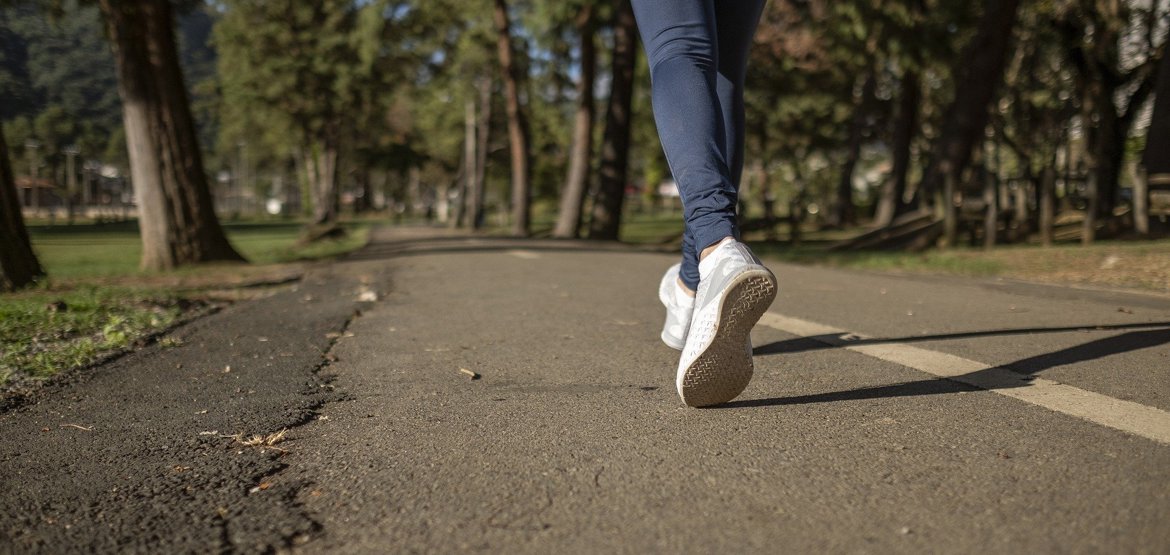Guest blog: 5 great fitness reasons to go alcohol-free
One Year No Beer’s Ruari Fairbairns shares how drinking alcohol might be negatively impacting your fitness goals.

It’s a safe bet to say that most of us want to feel fit and healthy. Able to do what we need to do physically throughout the day without much thought. Climbing stairs, lifting boxes, walking a few miles to pick up the car you parked at the train station the day before without feeling like it was a huge effort. Then there’s some of us who want to be able to push ourselves a little further. To see what else our bodies can achieve. Whether this is playing sports, going to the gym or other various fitness goals like hiking or swimming.
To reach more lofty heights, or even just moderate heights, we often need to focus a little more time, energy, and attention on the aspects of our lifestyle that help us to reach these goals. Factors such as sleep, diet, and training. Unfortunately, however, there may be a silent saboteur waiting in the sidelines that can negatively impact each of these areas – alcohol.
How drinking can impact you
No matter how into exercise you are, it’s good to understand how alcohol can impact your fitness. If you are interested in exploring your full physical potential, then your alcohol consumption is something that might be worth considering. After all, how many top athletes do you see out drinking regularly?
If you’re looking to improve your overall fitness, then it might be helpful to know that drinking alcohol can have a negative impact on the following things which can impact your overall sports performance.
- Sleep quality
- Hydration
- Concentration and coordination
- Reaction times
- Weight
Why good sleep matters
The importance of good sleep simply cannot be overstated and is one of the great benefits of going alcohol-free. Unfortunately, alcohol can interrupt your REM sleep1 (the important kind of restful sleep), meaning you might wake up feeling sluggish. A bad night’s sleep can also impact your mood and motivation to exercise. Even if you do force yourself up to exercise, you may not have the energy to put 100% into your workout. And if alcohol is still working its way out of your system, you may not yet have the cognitive function to move and coordinate as effectively2. Getting a sound quality night’s sleep after exercise is just as important as a good night’s sleep before it too, as most of your muscle recovery occurs during sleep.
Eating well
Drinking alcohol can also make you less likely to make healthy food choices, either by picking up a greasy take out on the way home from a night on the town or ordering a stodgy meal for delivery the following morning when you’re nursing a hangover. Because who really fancies making a well-balanced meal when they’re hungover?!
While having the odd takeaway might not harm your fitness, the empty calories from regularly drinking alcohol can contribute to weight gain or you not getting all the right nutrients you need to be performing optimally.
Staying hydrated
Another way alcohol might hold you back from performing at your best is by leaving you dehydrated. As alcohol is a diuretic, it can cause the body to lose more fluids which are vital for heat regulation and the lubrication of joints during exercise. This combination of sweat and the diuretic effect can make dehydration more likely. So, it’s essential to stay hydrated during exercise to maintain normal flow of blood through our bodies, which is essential for oxygen and nutrients to reach our muscles and all the body's organs.
Concentration, reaction, and coordination
Alcohol can also impact your reaction times too. Just like drinking can negatively impact someone’s ability to drive and react quickly to hazards, this too is the case for sports and fitness. Not only are reactions slowed, but accuracy can be impaired too. So, by cutting back on how much you’re drinking, your aim and ability to react quickly to a stimulus improves, good news for people who play sports such as tennis.
If you have a specific fitness goal you want to achieve this year, or simply want to feel your best, making one simple lifestyle change like reducing your drinking or giving up alcohol completely can create a positive domino effect through the rest of your life, helping to keep you healthy and make real strides towards your fitness goals.
Find out more
Can alcohol effect sports performance and fitness levels?
What to expect when you stop drinking
References
[1] Colrain IM, Nicholas CL, Baker FC. 2014. Available at: Alcohol and the sleeping brain
[2] Craig Gunn, Marlou Mackus, Chris Griffin, Marcus R. Munafò, Sally Adams. 2018. Available at: A systematic review of the next-day effects of heavy alcohol consumption on cognitive performance.
Please note that any third-party content on the Drinkaware website is intended for general information and non-commercial purposes only. Any links to third party websites are provided solely as a convenience to you and not as an endorsement by Drinkaware of the contents or accuracy of materials on such third-party websites. A guest author does not represent Drinkaware or their views. All care has been taken to ensure it is accurate at time of publishing, but medical guidelines often change, and this post may not be updated to reflect that. Always consult a suitably qualified medical professional in a timely manner before undertaking any medical-related decisions.